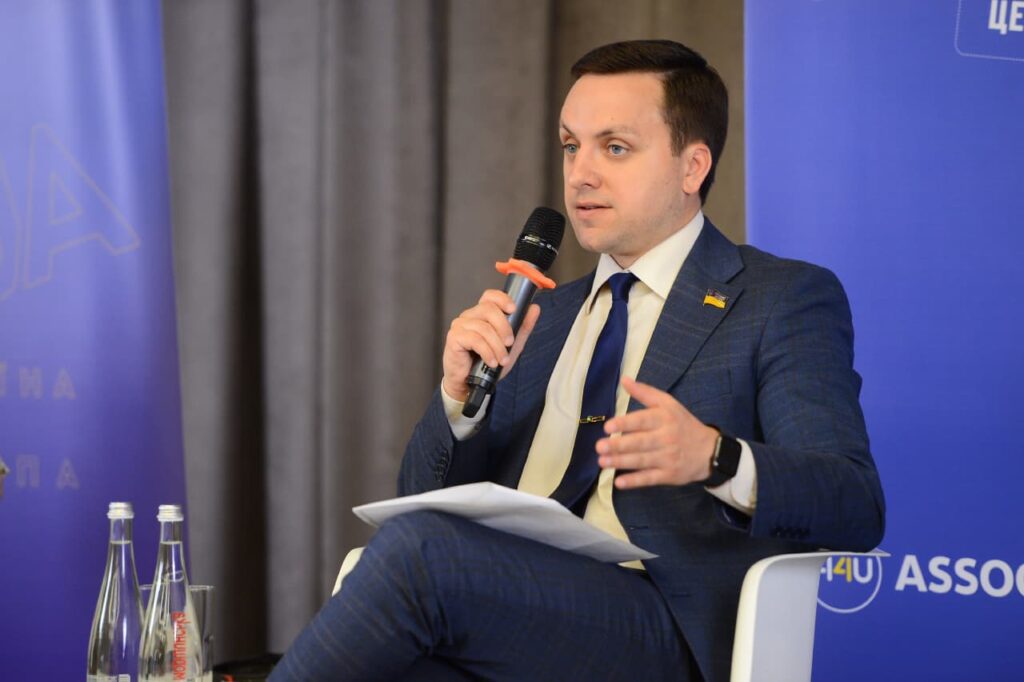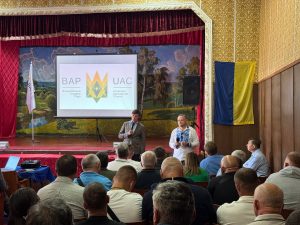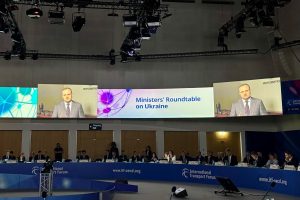Maritime issues: how the Verkhovna Rada of Ukraine will develop shipping, ports and shipbuilding

Will there be a “Maritime Day” in the Verkhovna Rada of Ukraine? What kind of legislative changes are expected by the industry and what should industry specialists prepare for? When will the “port-landlord” model start working, and is it worth it to be afraid of vessels flying a foreign flag on the rivers of Ukraine?
These and other topical questions for the maritime industry were asked by USM to Volodymyr Kreidenko, Deputy Chairman of the relevant committee of the Verkhovna Rada (Parliament of Ukraine) on Transport and Infrastructure.
For reference. Volodymyr Kreidenko, 34 years old. A native of Melitopol, Zaporizhzhia region. People’s Deputy of Ukraine of the IX convocation, a member of the Sluga Narodu (Servant of the People) party. Education: Kyiv International University, National Academy of Public Administration under the President of Ukraine. PhD in Public Administration.
– At the beginning of autumn, the so-called plenary “Maritime Day” was announced in the Verkhovna Rada, at which industrial bills will be considered. When can it take place and what bills are submitted to it?
Such a “Maritime Day” in the Verkhovna Rada can take place only after all the necessary information and all initiatives from industry representatives, specialized public organizations and associations, central executive authorities have been collected, which must be formalized into high-quality bills.
It is too early to speak about the exact date of the special plenary day, which will be devoted to the consideration of these bills. The development of bills to solve the problems of the maritime industry requires an integrated and professional approach.
– During the meeting of Olexandr Kornienko with representatives of the maritime industry in Odesa in early September, a range of issues was outlined that require legislative regulation. These are:
- dividend policy, which prevents state-owned enterprises from leaving enough funds for their own development;
- encouraging the transfer of vessels to the Ukrainian flag;
- transfer of part of the port industry revenues to community needs;
- lack of finance for dredging;
- competitive selection for superior positions in government agencies, due to which the Heads of most of the enterprises work in the status of “Acting”;
- high tariffs for railway transportation, which lead to congestion of roads to ports;
- lack of legal mechanisms for returning leased property to SOEs.
What work do you, the relevant committee and the Verkhovna Rada do in general in these areas?
Most of these issues can be resolved by introducing new bylaws (or making changes to existing ones) at the level of the Cabinet of Ministers, the relevant Ministry and other departments. Even without the involvement of the committee and parliament as a whole. In turn, my parliamentary colleagues and I, in cooperation with the Ministry of Infrastructure, are trying to find ways to resolve some issues: we are working on the development of the above-mentioned set of bills in the maritime industry.
– The Ukrainian Sea Ports Authority corporatization bill was developed back in 2019. However, later it turned out that he needed to be improved. In this connection, the process is being delayed and what exactly needs to be improved?
Indeed, the aforementioned bill was developed by the relevant Ministry and made public for public comment back in November 2019. For about a year this project was discussed and, as far as I know, received a number of significant comments from various executive authorities, public organizations, as well as the State Regulatory Service. Today there is a procedure for agreeing on all the nuances and eliminating controversial issues, all constructive comments are taken into account. If proposals are rejected, they are given a deep ground. In the end, we all want to get a quality document that does not cause any complaints.
– At the Ukrainian Ports Forum in Odesa, you said that now the Parliament is faced with the task of developing legislative mechanisms for introducing the “p I hope that soon they will already be implemented into existing legislative acts, or formalized into new ones. uction of the model bring to both the state and business? You also stated that it is necessary at the legislative level to divide the functions of state supervision, control in the field of safety of navigation, operational and economic activities between the USPA and stevedoring companies. What steps have been taken?
Legislative mechanisms for the implementation of the “port-landlord” model are already undergoing approval. The same can be said about the division of the functions of state supervision, control over the safety of navigation, operational and economic activities between the USPA and stevedoring companies.
I hope that soon they will already be implemented into existing legislative acts, or formalized into new ones.
As for the introduction of the “port-landlord” model, it will give power to the state represented by the USPA. I am talking about the power that is necessary for systemic coordination, for planning the use of port land, and for the integrated development of port territories. This is what ultimately can help us attract investors and offer them much better conditions. And this, in turn, will strengthen the position of Ukraine as a country-exporter of goods and products in the world market.
– The law “On Inland Water Transport”, which will come into force on January 1st, raises concerns among representatives of the shipbuilding industry. In the part that concerns the admission of foreign vessels to cargo transportation on the inland waterways of Ukraine. In the opinion of business representatives, the admission of foreign vessels will absolutely “kill” the domestic shipbuilding industry. What steps is the legislator taking, planning or can take to support and protect Ukrainian shipbuilding and ship repair enterprises?
In my opinion, the admission of foreign vessels to cargo transportation on the inland waterways of Ukraine should promote increased competition and improve the quality of services. As for domestic shipbuilders, this is a good incentive to keep up with their foreign colleagues and produce vessels that meet all modern requirements.
– At the beginning of October, at the conference “Freight traffic on Dnipro river”, your colleague on the committee, Yulia Klimenko, stated that by the time the law “On Inland Water Transport” came into force on January 1st, 2022, they would not have time to approve a special fund to finance projects provided for by the new law. How will this affect the implementation of the law?
There is a high probability that the bill aimed at creating a fund for inland waterways as part of a special fund of the state budget will be adopted by the end of this year. Presumably, it will enter into force simultaneously with the Law “On Inland Water Transport” from January 1st, 2022. Therefore, all concerns that the Law “On Inland Water Transport” will not be implemented are not justified.
Interviewed by Evhen Belyy.





